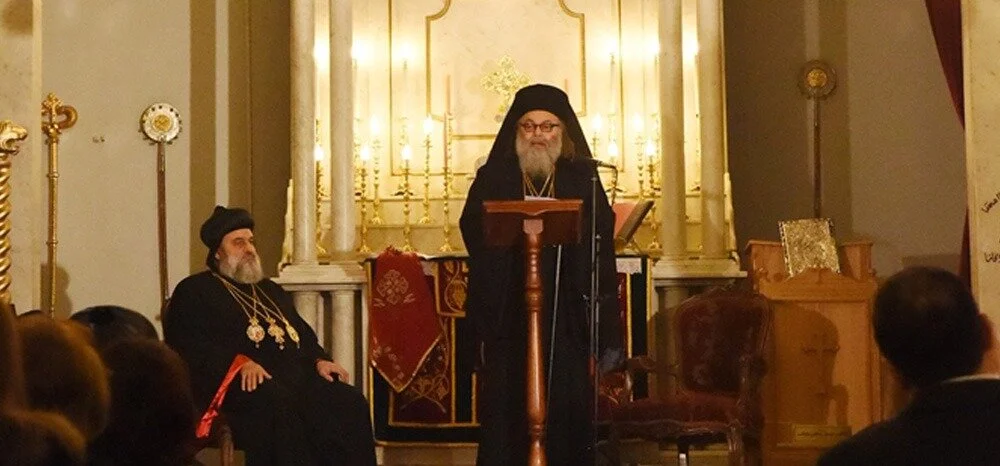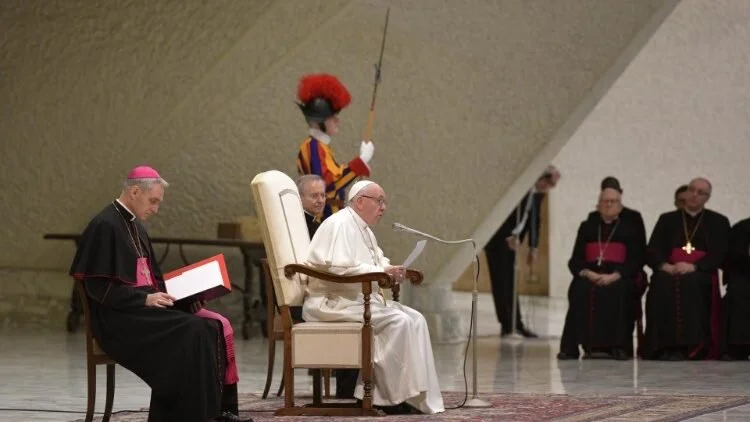The "Week of Prayer for Christian Unity"
A Prayer Octave celebrated between the Chair of St. Peter and the Conversion of St. Paul!
This week, between January 18 and 25, Christians around the world participate in a historical stance. They unite together through common prayer deepening the spiritual communion between them and representing the spirit of unity in the diversity of all Churches.
The “Week of Prayer for Christian Unity” is a tradition that has been celebrated for decades on the same date every year. Each year has a specific title and message to contemplate. 2021 is entitled "To remain in God’s love and in self-reconciliation" (John 15: 1 -17). Christians today, especially in the Middle East, are in dire need of unity, mainly in facing the difficult circumstances that their countries are going through.
How the "Week of Prayer for Christian Unity" started
The idea of Christian unity appeared in 1740 in Scotland with a Protestant Pentecostal group whose main goal was to invite all Churches to participate in prayer and renew their faith. Evangelical pastor Jonathan Edward called on choosing a day dedicated for fasting and prayer for this unity.
Source: The Presbyterian Church in Canada
In 1820, Rev. Haldane Stewart published "proposals" for the complete Christians unity through the advent of the Holy Spirit. Anglican pastor Ignatius Spencer who later joined the Catholic family then suggested in 1840 establishing a “Union of Prayer for Unity”. The First Lambeth Conference of Anglican Bishops emphasized in 1867 on the necessity of praying for this unity in its resolutions and by constantly reaffirming its importance during meetings. In 1894, His Holiness Pope Leo XIII stressed in several publications on the importance of the Prayer Octave for Unity during Pentecost.
In 1908, Franciscan pastor Paul Wattson celebrated for the first time the Christian Unity Prayer Octave in New York, wishing all churches would adopt this common prayer. The “Faith and Order” movement emanating from the World Council of Churches and the Pontifical Council for Promoting Christian Unity published in 1926 many proposals for this prayer. In 1935, Catholic priest Paul Couturier began advertising the “Universal Week of Prayer for Christian Unity” on the basis of “the unity Christ wills by the means he wills”.
Several years later in 1958, the Ecumenical Center “Unité Chrétienne” (Christian Unity) in Lyon, France, and “Faith and Order” began a co-operative preparation of the Week of Prayer. In 1964, His Holiness Pope Paul VI and His Beatitude Patriarch Athenagoras I prayed together Jesus’ prayer “that they all may be one” (John 17-21) in Jerusalem. In the same year, the Vatican II decree on Ecumenism highlighted that prayer is the soul of the ecumenical movement and stressed that the Week of Prayer in celebrated yearly. The "Faith and Order" commission began the preparation of the Week of Prayer official material starting 1966.
In 1968, the week of prayer was celebrated under one unified text for the first time, turning it into a yearly event Christians around the world celebrate between January 18 and 25. According to Rev. Paul Wattson, unity lies in the return to the Roman Catholic Church, thus the symbolic dates of the week: as January 18 indicates the St. Peter’s Feast of the Chair celebration, while January 25 symbolizes the Feast of the Conversion of St. Paul, Apostle of Nations. Following the official integration of the Reflection Institution into the Catholic Church, His Holiness Pope Pius X agreed to the Prayer Octave for Unity, so that Christians would "unite" with the Catholic Church.
Church presidents call for Christian unity and more life to the ecumenical movement
It is true that ideologies, traditions and prayers differ from one church to another, but many involved people and believers expressed their wish to achieve a unity of Christians and all the churches. In their turn, the presidents of the Churches encouraged, over the years, the common prayer among all Christians while strengthening the dialogue and building bridges among them. This is the main goal of the Middle East Council of Churches’ mission, always striving to deepen the spiritual communion among Churches while unifying their opinions and efforts.
Source: Al Masri Al Yom
During the weekly sermon of His Holiness Pope Tawadros II of the Coptic Orthodox Church of Alexandria in St. Mark Cathedral, Abbasiya in 2020, he hosted the "Week of Prayer for Christian Unity". He pointed out that “the origin of Christianity is One Christianity”. He added: “as a result of human sins, self-love, narrow-minded thoughts and non-acceptance of the other, a so-called division spread in the whole world while the Church remained unified for 5 centuries”. Pope Tawadros II commented on the Meeting for Unity saying: “everyone becoming one gives hope. Not everyone has enlightenment. One may have faith but not enlightenment.”
Source: Greek Orthodox Patriarchate of Antioch and All the East
His Beatitude Patriarch of Antioch and All the East for the Greek Orthodox Patriarchate of Antioch John X explained the concept of Christian unity in a speech he delivered during a prayer held at St. Georges’ Syrian Orthodox Cathedral in Damascus. His participation in the prayer came within the framework of the series of prayers during the Week of Christian Unity after being invited by His Beatitude Patriarch of Antioch and All the East and Supreme Head of the Universal Syriac Orthodox Church Mor Ignatius Aphrem II. Patriarch John X pointed out that Christian unity does not mean erasing one another nor does it mean bringing one another down. Unity is to admit in one unified voice: “We are all wrong and in need of God’s glory” ... It is wrong to think that unity is only acquired through human dialogue. Christian unity is first the necessity of Christian existence and evidence... Unity is built and accomplished when each of us strives to unite with Christ.”
Source: Vatican Media
His Holiness Pope Francis ended his word to his audience on January 16, 2019 before the launching of the 2019 "Week of Prayer for Christian Unity" entitled “They showed us unusual kindness” (Acts 28:2) affirming: “this year we are called to pray so that Christians may become one family once again according to God’s will for all of them to be one” (cf. John 17:21). Pope Francis emphasized in his word that the Ecumenical movement is “not optional”, adding that the intention is to attain a common witness to true justice and to help the most vulnerable through concrete, appropriate and effective answers.
The "Week of Prayer for Christian Unity" is characterized by its annual celebrations and the publication of a booklet including meditation and prayers from different Churches, as well as different meetings and dialogues. However, due to the repercussions of the Coronavirus around the world, some of these celebrations were postponed and replaced with virtual prayers and seminars based on the booklet published in several languages and translated into Arabic by the Middle East Council of Churches.
Let us pray together during this week, to be one, as you are, O Lord Jesus, in the Father and He in You. O Savior, grant us to be all gathered in You so that we may repeat relentlessly, with our mouths and hearts, Your prayer for Christian unity!
Communication and Public Relations Department
Sources:
Zenit website: https://bit.ly/2M55JGm
Coptic Catholic Church of Alexandria in Egypt website: https://bit.ly/3p0f3tJ
“Week of Prayer For Christian Unity” booklet: https://bit.ly/3pbf5PT
Al Masri Al Yom website: https://bit.ly/35Te3Ak
Greek Orthodox Patriarchate of Antioch and All the East website: https://bit.ly/3sLJFBR - https://bit.ly/3sFbcV9
Vatican News website: https://bit.ly/3sC5Eej





